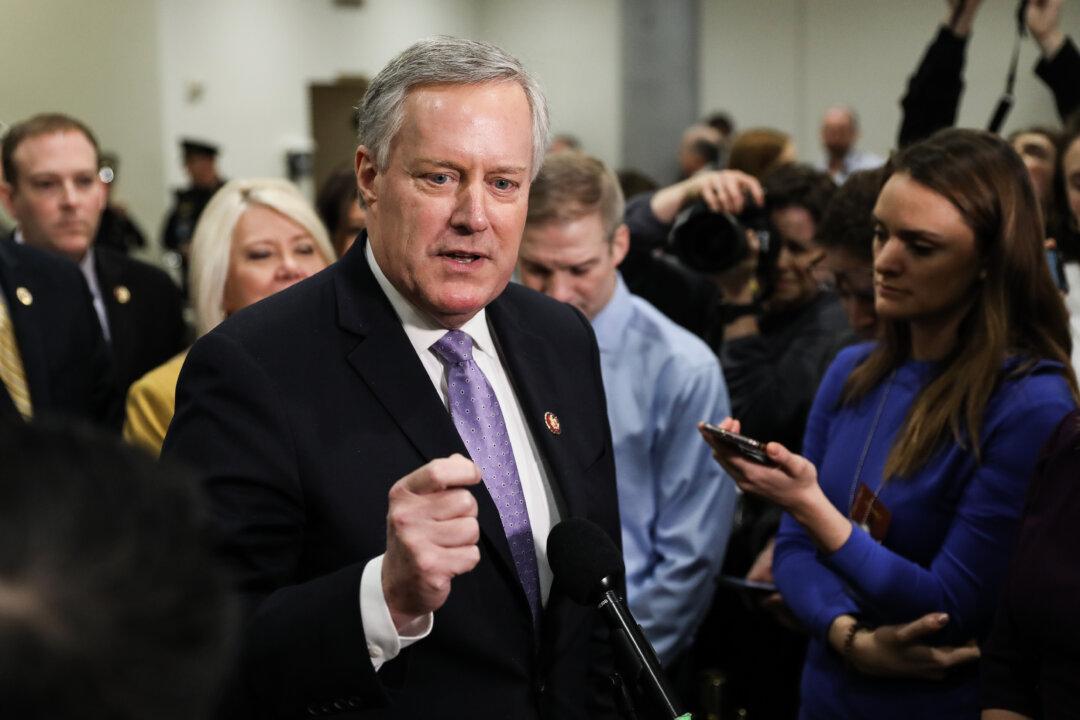A federal judge has denied Mark Meadows’s motion to temporarily stay an order remanding a racketeering prosecution to state court, while the former Trump White House chief of staff appeals it to the U.S. Court of Appeals for the 11th Circuit.
The new ruling, which is a tactical victory for Fulton County, Georgia, District Attorney Fani Willis, a Democrat who initiated the racketeering prosecution, was made public on Sept. 13.





